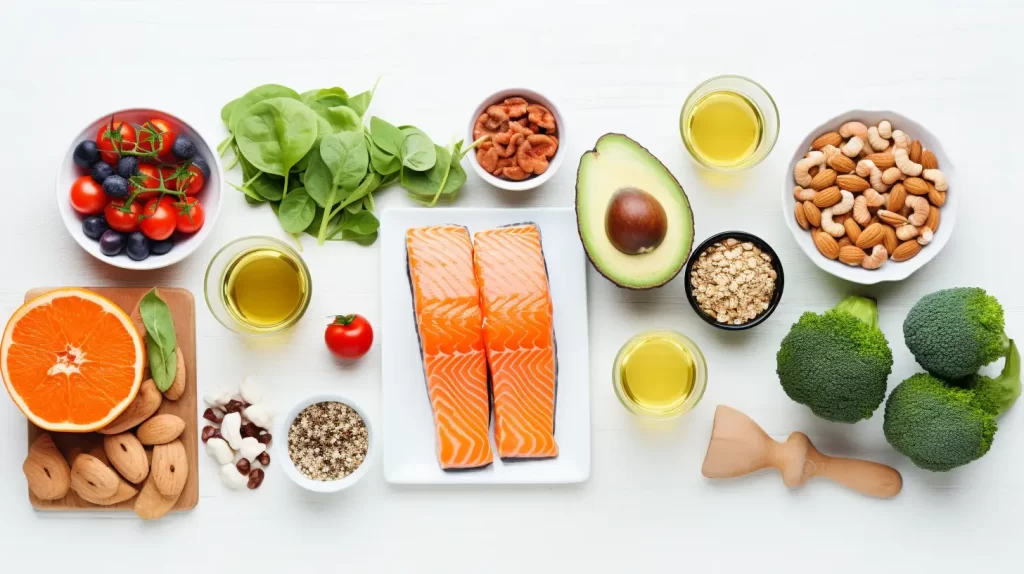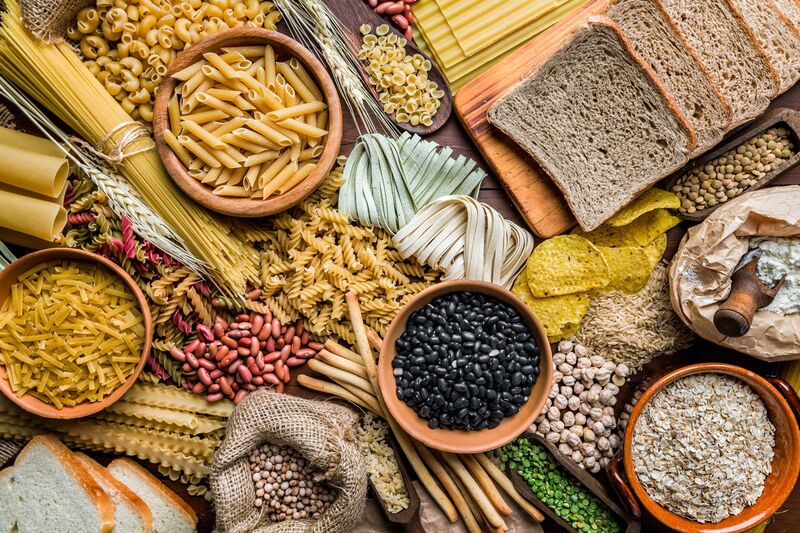Swimming is a demanding sport that requires not only rigorous physical training but also a carefully planned diet to optimize performance. A swimmer’s diet is crucial in enhancing energy levels, improving recovery times, and maintaining overall health. This article explores the top 5 best diets for swimmers, focusing on the nutrients and meal plans that can help boost performance in the pool.
Key Takeaways
- A balanced diet with a variety of nutrients is essential for swimmers to maintain energy and support recovery.
- Hydration is as important as food intake; swimmers should prioritize fluid intake throughout the day.
- High-carbohydrate meals are crucial before training to fuel intense swimming sessions.
- Incorporating lean proteins and complex carbohydrates can help in muscle repair and sustained energy.
- Strategic fueling involves planning meals and snacks around training schedules to optimize performance and recovery.
Balanced Swimmer’s Diet
A balanced swimmer’s diet is crucial for both training and recovery. It should include a mix of carbohydrates, proteins, and healthy fats to ensure you’re getting all the nutrients needed for peak performance. Carbohydrates are especially important as they serve as the primary fuel source during intense workouts. Protein is essential for muscle repair and growth, so including sources like lean meats, fish, and eggs is vital.

Swimmer diet
Key Components of a Balanced Diet
- Carbohydrates: Primary energy source, should make up about half of a swimmer’s diet.
- Proteins: Essential for muscle repair, include lean meats, fish, eggs.
- Healthy Fats: Supports overall health, include options like avocados and nuts.
- Hydration: Drink water regularly to stay hydrated.
- Vitamins and Minerals: Ensure a diet rich in fruits, vegetables, and whole grains.
Remember, it’s about finding what works best for your body and training needs. Consulting with an Accredited Sports Dietitian can help tailor your diet to your specific requirements.
Hydration Focus
Hydration isn’t just about drinking water; it’s about strategically hydrating to enhance your performance in the pool. Start by creating a personalized hydration strategy that considers your body’s needs during different training phases. Pay attention to your body’s signals like thirst and the color of your urine, which can indicate hydration levels.
Remember, staying hydrated helps maintain your performance during long and intense swim sessions.
Here’s a quick guide to keep you well-hydrated:
- Begin your day by drinking 16 oz of water about 2 hours before your swim.
- Keep sipping small amounts during your swim, especially if it’s a long session.
- Experiment with electrolyte drinks during extended sessions to see if they boost your stamina and recovery.
- Always weigh yourself before and after a swim to monitor how much fluid you’ve lost and need to replenish.
Read more: Effective Food Plans for Swimmers: Strategies for Nutritional Success
High-Carbohydrate Meals
When it comes to fueling swimmers, high-carbohydrate meals are essential, especially before intense training sessions or competitions. Carbohydrates are the primary source of energy for swimmers and help maintain blood sugar levels during long workouts, ensuring sustained performance.

High-Carbohydrate Meals
What to Eat
For meals 3-4 hours before swimming, focus on complex carbohydrates. These carbs are digested slowly, which helps in gradually raising blood sugar levels and providing sustained energy. Here’s a quick list of complex carbs to include in your diet:
- Brown rice
- Whole grain bread
- Sweet potatoes
- Oats, barley, quinoa
- Granola bars
- White potatoes
For shorter intervals or right after workouts, simple carbohydrates can be more beneficial as they are absorbed quickly and help in rapid recovery. Examples include:
- Sports drinks
- Applesauce pouch
- Juice boxes
Read more: A Comprehensive Meal Plan for Swimmers to Enhance Endurance
Meal Examples
An ideal pre-competition meal might look like this:
- A large serving of starchy carbs (pasta, rice)
- Carb-rich fruits and veggies (avoid raw veggies before swim)
- A small serving of lean protein (chicken, turkey)
- Plenty of fluids (preferably water or a low-caffeine sports drink)
- Some salty snacks to replenish salts lost during swimming
Remember, the timing of your meals is just as important as what you eat. Eating too close to a swim can lead to discomfort, while eating too early might leave you hungry before you even start.
Lean Proteins and Complex Carbs
When it comes to fueling your body for swimming, lean proteins and complex carbohydrates are your best friends. These nutrients are crucial for building muscle, repairing tissue, and providing a steady energy source that doesn’t spike your blood sugar levels.
Lean Proteins
Lean proteins are essential for muscle repair and recovery after intense swim sessions. Here are some top choices for swimmers:
- Chicken or turkey breast
- Fish like salmon or tuna
- Lean cuts of beef
- Eggs
- Greek yogurt
Complex Carbohydrates
Complex carbs provide a slow and steady release of energy, which is perfect for endurance sports like swimming. Here are some great options:
- Brown rice
- Whole grain bread
- Sweet potatoes
- Oats, barley, and quinoa
- Granola bars
Remember, the key to a swimmer’s diet is not just what you eat, but when you eat. Timing your meals to ensure you have the right fuel at the right time can make a big difference in your performance.
Strategic Fueling and Nutrition
Strategic fueling and nutrition are crucial for swimmers to maintain energy levels and optimize performance. Incorporating planned fueling breaks during workouts can significantly enhance endurance and effectiveness. These breaks can be seamlessly integrated between sets, ensuring athletes and coaches remember to prioritize them.
Read more: How Swimmers Can Optimize Their Diet and Workout for Maximum Results
Key Points for Effective Nutrition:
- Pre-workout meals are essential; never let swimmers train on an empty stomach.
- Organize snacks and meals for ‘on the run’ eating, considering the busy schedules of athletes.
- Focus on a diet rich in lean proteins, carbohydrates, and healthy fats from fruits, vegetables, nuts, seeds, and wholegrains.
Remember, the right nutrition strategy not only supports physical demands but also enhances recovery and overall health.
By strategically planning nutrition and hydration, swimmers can achieve peak performance and maintain it throughout their training and competitions.
Unlock the secrets to optimal performance with our ‘Strategic Fueling and Nutrition’ guide. Dive into expert advice on how to balance your nutritional intake to enhance your water performance. Don’t miss out on the full article and more invaluable resources. Visit our website now for comprehensive insights and tips tailored for swimmers at all levels!
Dive Into Success: The Final Lap
As we wrap up our exploration of the top diets for swimmers, remember that the right nutrition can significantly elevate your performance in the pool. Whether you’re gearing up for a competition or just swimming for fitness, integrating these dietary strategies can help you swim faster, recover quicker, and feel your best. Experiment with what works for you and make adjustments based on your body’s responses. Keep pushing your limits, and let your diet be your secret weapon in achieving those new personal bests. Dive in, fuel up, and make every lap count!
Read more: Optimal Swimmers Diet Plan to Lose Weight: A Comprehensive Guide
AUTHOR
Sang Nguyen
Sang Nguyen is a former national swimmer for Vietnam who has transitioned into coaching. With a passion for fostering a healthy swimming community and connecting like-minded individuals,......Read More
BLOG
Maybe You Are Interested
Good Swim Meet Snacks: What to Eat for Optimal Performance
Good nutrition is crucial for swimmers to maintain energy, recover quickly, and perform at their...
Read More...Optimizing Your Performance: The Best Diet for Swimming Training
Optimizing your performance in swimming is not just about rigorous training; it’s equally crucial to...
Read More...Achieve Peak Performance with This Diet Chart for Swimmers
Whether you’re a novice or an expert swimmer, understanding the right diet is crucial for...
Read More...Eating Like a Champion: Exploring the Diet of Michael Phelps
Michael Phelps, renowned for his Olympic triumphs, has a diet as extraordinary as his swimming...
Read More...Muscle Gain for Swimmers: Tailoring Your Diet for Strength
Swimming is a demanding sport that requires a tailored approach to nutrition to support muscle...
Read More...A Comprehensive Diet Plan To Gain Weight For Swimmers
Swimming is a demanding sport that requires meticulous attention to nutritional needs to optimize performance,...
Read More...